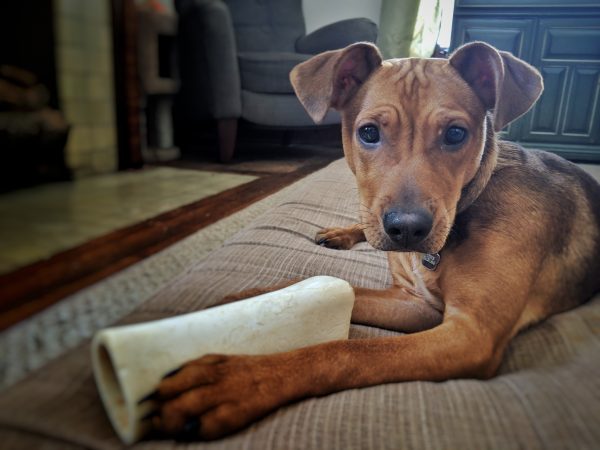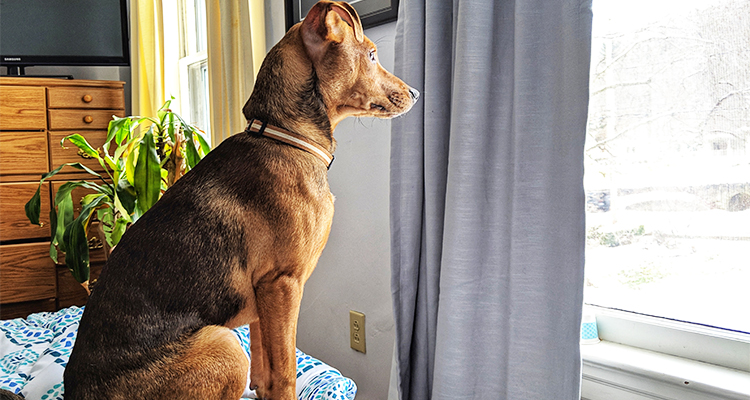We’ve all got that friend on social media who shares photos of shelter animals. That’s how I found The Road Home Animal Project. The non-profit organization in St. Clairsville, Ohio, is run entirely by volunteers. Like many rescue groups, they’re working hard to find families for homeless animals, many of whom have been abandoned, abused and neglected.

Chris Shriver is president of The Road Home Animal Project (TRHAP). She began as a volunteer at the Belmont County Animal Shelter. In 2014, because of her knowledge and experience with livestock, she was asked to assist with a group of horses and mules that had been rescued. From January until April, volunteers cared for the animals and ultimately found homes for all of them. Those volunteers began to see the need for continued efforts. Thus, The Road Home Animal Project was born as a 501(c)(3) that September.
Getting Into the Rescue Business
“A lot of those volunteers got together,” Shriver recalled. “We were camping at Barkcamp and tried to come up with a name and tried to figure out how we were going to do it.” She says active members of the project have come and gone, but she and Mandae Lewis — the VP and former Belmont County Humane Officer — are still there, and the organization has gained new members along the way. They meet at least four times a year in an official capacity but are in constant contact over day-to-day operations.
That includes continuing efforts to improve the lives of their fosters. After our interview, Shriver was going to meet with a volunteer from Belmont County Animal Shelter about organizing training for foster families to help them navigate some of the circumstances they face.
“We get [animals] from all types of situations,” Shriver said. “Abused, neglected. We get contacted by vets a lot of times about throwaways, where a breeder [says] they’re not the right color, or they’re 12 weeks old, and they can’t place the dog. It’s not a cute little puppy anymore, and they will take them to the vet to euthanize because it’s a tax write-off.”
As appalling a thought as that is, it does happen.
While TRHAP rehomes dogs and horses, they don’t work with cats on a regular basis. It’s not for lack of cat-love; it’s because other groups in the valley are doing a good job in that area.
“We’ve taken a few cats, but because there are so many cat rescues — like Back Street Cat Rescue — we tend to [focus on] dogs,” Shriver said. She also mentioned rehoming horses, pot-bellied pigs and chickens. She once took 40 chickens and ducks home in a horse trailer from the Columbus area. TRHAP rescuers had to catch them and crate them to get them back to St. Clairsville.
Operating a rescue isn’t cheap. But the volunteers make do.
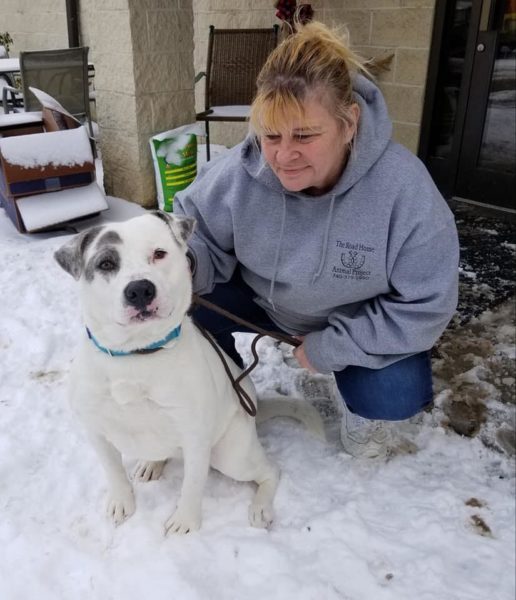
Despite the prevalence of sorrow, Shriver doesn’t focus on human misdeeds.
“We just want to help the animals,” she said. And they are. Recently, TRHAP ended up with several Labradoodles that couldn’t be placed by their breeders. She said the foster families are working with them with success, and several have already gone to new homes. The older dogs, 14 weeks old, were a bit more of a challenge as they’d gone longer without a family. Socialization at a young age is very important, and its lack presents challenges, but the organization is dedicated to working with each dog.
At any one time, TRHAP probably has around six foster families. It’s a full-time job when a new rescue arrives, and foster families often take a break and then come back to fostering. They also don’t take more than they can support; some rescue organizations start out with good intentions but end up with too many animals.
Shriver said, “We only take in the animals that we can handle or have fosters for. We don’t want to become a group that ends up being a hoarding situation.”
The Adoption Process
Because TRHAP fosters rescues in homes, often for weeks to months, the foster families really get to know the animals’ personalities. They can tell you if a dog likes children, if it displays food aggression or if it chases cats. Each dog is unique. TRHAP’s goal is not just to find a home for these animals but to find the best home. That means taking applications and doing homework.
“We do vet checks to make sure that, if [applicants] have animals, they are altered,” Shriver said. “That’s one of our stipulations.” Not only do they want you to prevent a litter by fixing your critter, but spaying and neutering can also curb unwanted behaviors and improve health.
Due diligence is important when it comes to matching applicants with rescue animals. You need to be honest on the application about your living situation. Do you have a physical fence or a wireless one? None at all? Do you rent your home or own it? What other pets already live with you? These questions help the project find the right animal for you. Shriver also said they use Google Earth to look at people’s property and follow up with courthouse records to make sure you really are a homeowner if you claim to be one. Meanwhile, the animals are vetted accordingly.
“We do rabies shots when they’re age appropriate,” she said. “They have their DHLP/Parvo, they have Lyme vaccines. We heartworm test, we alter. If there’s one that’s injured or lame, we do X-rays. We do blood work. We’ve taken dogs to Pittsburgh to bigger hospitals, and we have one that’s been to Ohio State. So we’re not in it for the money. We’re just trying to place them in the best home they can get.”
How You Can Help
Obviously, The Road Home Animal Project is seeking homes for rescue animals. (You’ll even find some parrots on their website right now.)
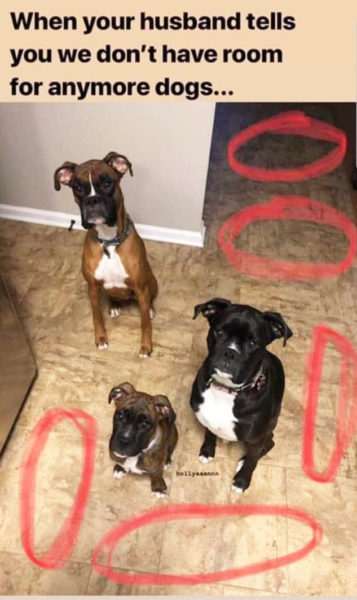 You can help by following them on social media and spreading the word. The ASPCA reports adoptions have increased 66 percent with social media sharing.
You can help by following them on social media and spreading the word. The ASPCA reports adoptions have increased 66 percent with social media sharing.
If your house is as full as your calendar, and there’s no way you can take an animal, you can still help. TRHAP accepts monetary donations, of course, and leashes, collars and dog food are always needed. Moreover, vet bills get expensive. Each animal is vetted, spayed/neutered and treated as necessary. Shriver recalled one senior dog dumped on the side of the road whose eyes were in such bad shape they had to be removed at Town & Country Animal Hospital. The dog went on to make a full recovery in a forever home. If you like, donations can be made directly to veterinarians. TRHAP has accounts at New Horizon Animal Hospital, Key Animal Hospital, and Town & Country Animal Hospital.
Shriver said, “We had somebody for Christmas put $250 at two different vets on our account, which was awesome. That goes straight to the dogs.” You can also help via Amazon Smile: by designating The Road Home Animal Project as your charity, 0.5 percent of each purchase goes to the rescue. Likewise, you can register your Kroger card, and Kroger will make contributions through their Kroger Community Rewards Program (choose organization LT730). It’s the easiest way to give.
You can find more about the organization on their website, where you’ll see up-to-date information on adoptable animals, surrender forms, foster applications, and adoption forms.
Come to the Steak Fry Fundraiser
TRHAP will be hosting a steak fry fundraiser on Feb. 16 at the Chevron Building at the Marshall County Fairgrounds. Last year’s event sold out, so this year the space is bigger, and the parking is ample. Tickets are $25 per person or $40 couple, and that includes food, desserts and drinks. There will be a Chinese auction, door prizes and lots of dancing. The DJ will play from 5-11 p.m. with very few interruptions.
If you or your business are interested in sponsoring or donating to the event, Shriver will pick up donations. Gift certificates and items for prize baskets are welcome. Also, visitors may bring donations of a leash, collar or harness to be entered for door prizes.
An Unexpected Addendum
When I spoke to Chris Shriver to arrange our interview, I asked if I could meet one of the foster dogs. She brought Minnie, who is short and red with big eyes and goofy ears, and is the only pup left of her rescued litter of 10. She’s well mannered, loving, and, at 5 months old, she’s learned to keep up with the big dogs in Shriver’s house.
When I walked out the door that morning for the interview, my husband said, “I know you’re coming home with that dog.”
I said no, I absolutely was not because we already had two dogs and two cats, and that was plenty. I drove to that interview determined to tell this story so well that Minnie would find her forever home the very day Weelunk published the article.
I was right. Minnie found her forever home.
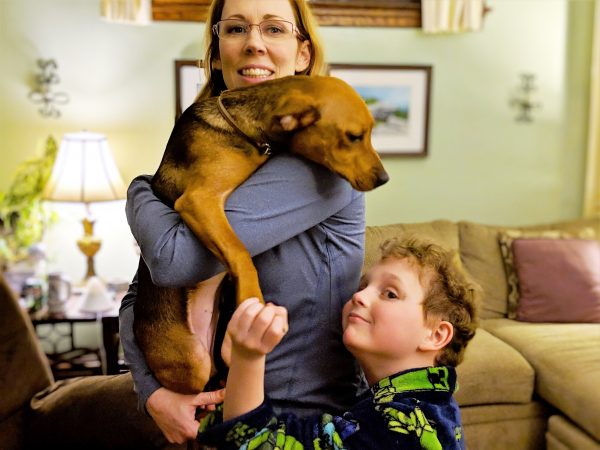
My smug husband grinned at me for three days.
The Road Home Animal Project will host a steak fry fundraiser from 5-11 p.m. Saturday, Feb. 16. Tickets are $25 per person or $40 per couple and are available by calling 304-312-6882.
• Laura Jackson Roberts is a freelance writer in Wheeling, W.Va. She holds an MFA in Creative Writing from Chatham University and writes about nature and the environment. Her work has recently appeared in Brain, Child Magazine, Vandaleer, Animal, Matador Network, Defenestration, The Higgs Weldon and the Erma Bombeck humor site. Laura is the Northern Panhandle representative for West Virginia Writers, a blog editor for Literary Mama Magazine and a member of Ohio Valley Writers. She recently finished her first book of humor. Laura lives in Wheeling with her husband and their sons. Visit her online at www.laurajacksonroberts.com.
